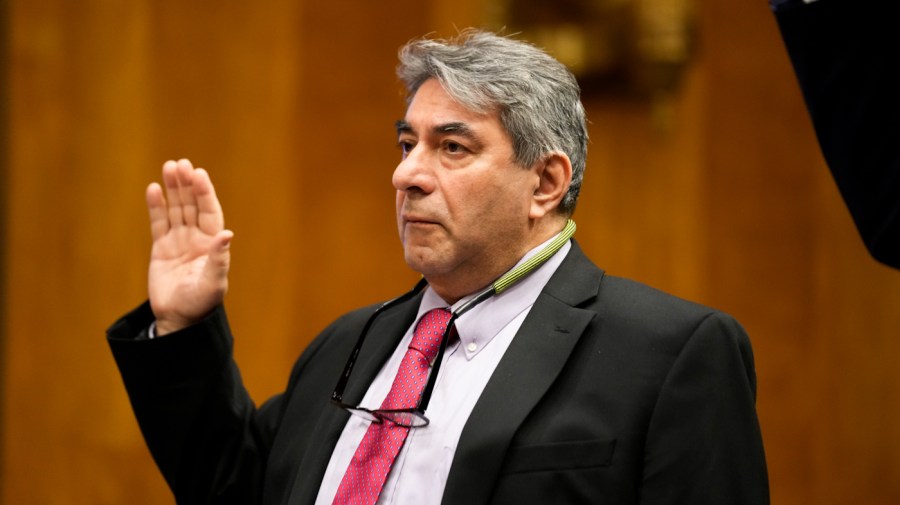
Boeing whistleblower Sam Salehpour appeared to tear up as he told a Senate committee he was “at peace” with his decision to publicly share his story.
Salehpour, a quality engineer at Boeing, alleged he was isolated and threatened after he flagged concerns that portions of the 787 Dreamliner fuselage were improperly connected as a result of the company’s “rush to address the bottlenecks in production,” resulting in gaps that could lead to “premature fatigue failure.”
The engineer says he was taken off projects, left out of meetings and harassed by his boss after he raised concerns and believes someone punctured his tire with a bolt while he was at work.
“It really scares me, believe me, but I am at peace,” Salehpour told the Senate Permanent Subcommittee on Investigations during a Wednesday hearing.
“If something happens to me, I am at peace because I feel like coming forward, I will be saving a lot of lives,” he added.
The hearing took place just over a month after another Boeing whistleblower, John Barnett, was found dead amid his testimony in a lawsuit against his former employer.
Barnett had also accused the airline giant of retaliating against him after he flagged manufacturing issues at a 787 factory in South Carolina. Local officials said he appeared to die of a self-inflicted gunshot wound.
Rodney Barnett told the Associated Press that his brother “was suffering from PTSD and anxiety attacks as a result of being subjected to the hostile work environment at Boeing, which we believe led to his death.”
A Boeing spokesperson previously told The Hill that the company “understands the important oversight responsibilities of the Subcommittee and we are cooperating with this inquiry. We have offered to provide documents, testimony, and technical briefings, and are in discussions with the Subcommittee regarding next steps.”
In addition to the congressional inquiry, Boeing is being investigated by the Department of Justice and the Federal Aviation Administration in the wake of a high-profile accident in January. The door plug on a Boeing 737 Max 9 flew of shortly after an Alaska Airlines flight took off, and while no one died, there was universal agreement — even from Boeing — that the company’s safety culture and policies needed to change.
Sen. Richard Blumenthal (D-Conn.), the chair of the committee, thanked Salehpour and those who have come forward to tell their stories.
“Thank you for your courage. Thank you for speaking truth to power in the best sense of that word. Thank you for facing down one of the most powerful companies in the world,” Blumenthal said. “We intend to uncover what has enabled the culture of safety disregard to exist, so that we can change it for good.”
Copyright 2024 Nexstar Media Inc. All rights reserved. This material may not be published, broadcast, rewritten, or redistributed.














